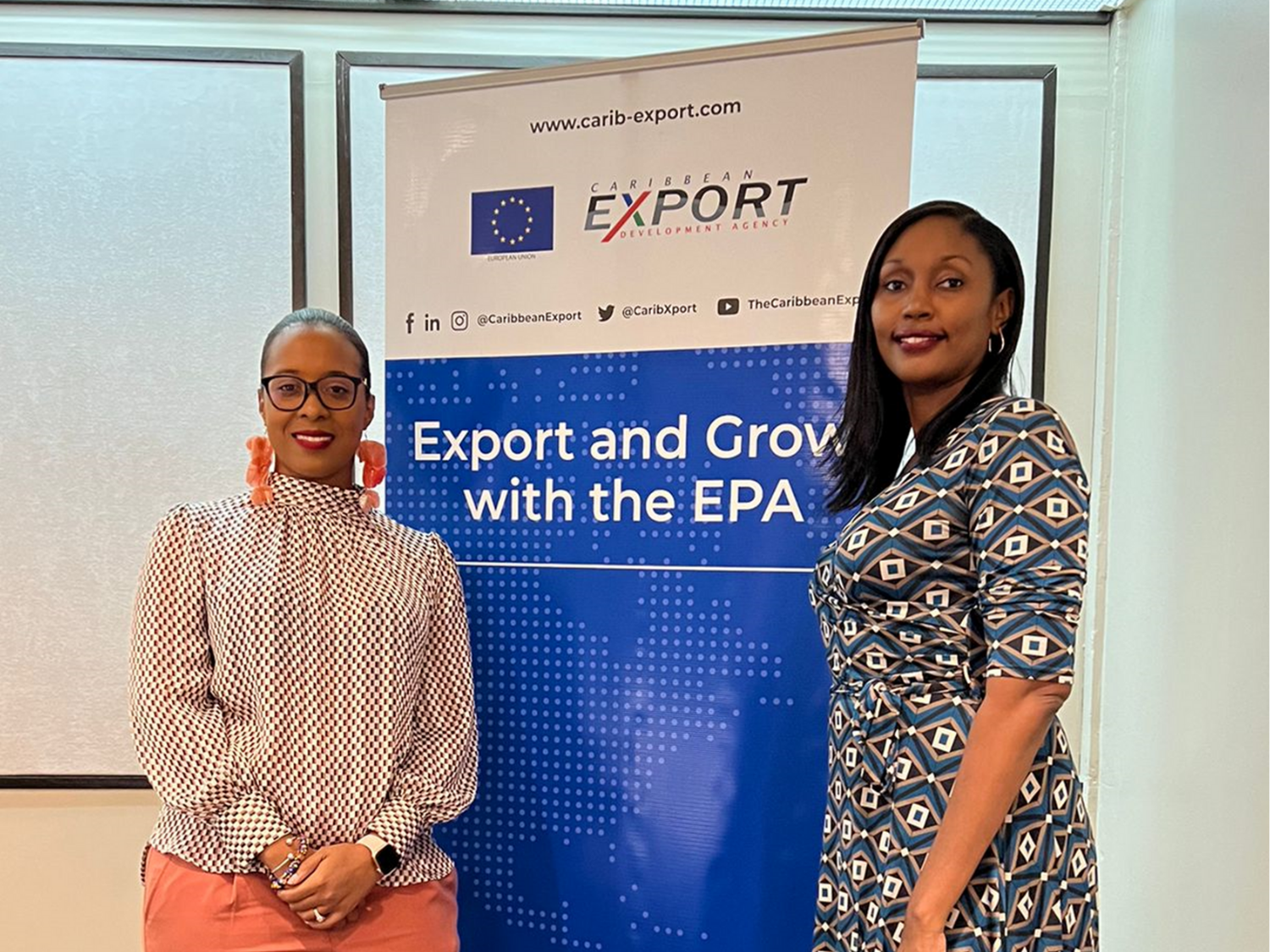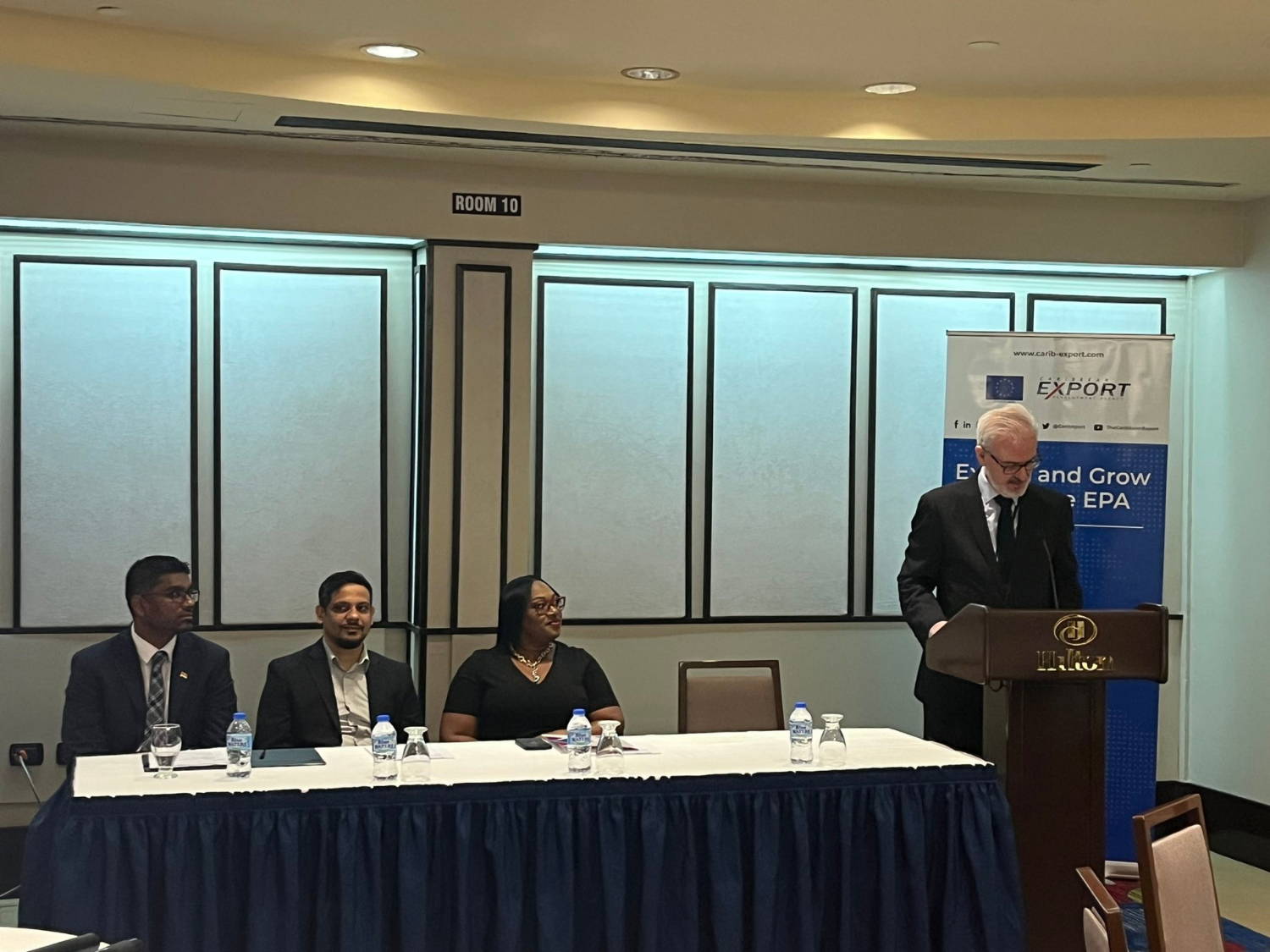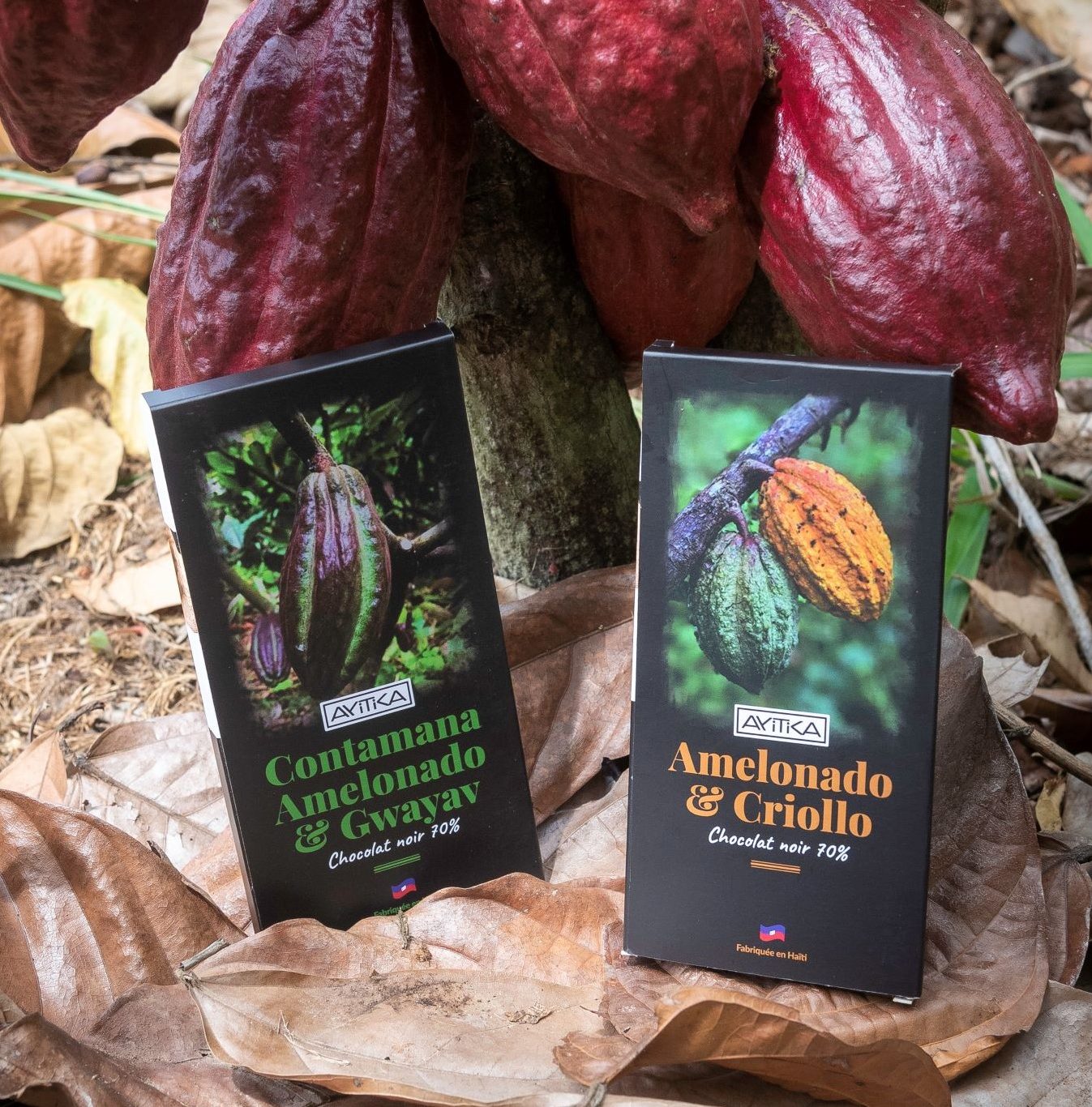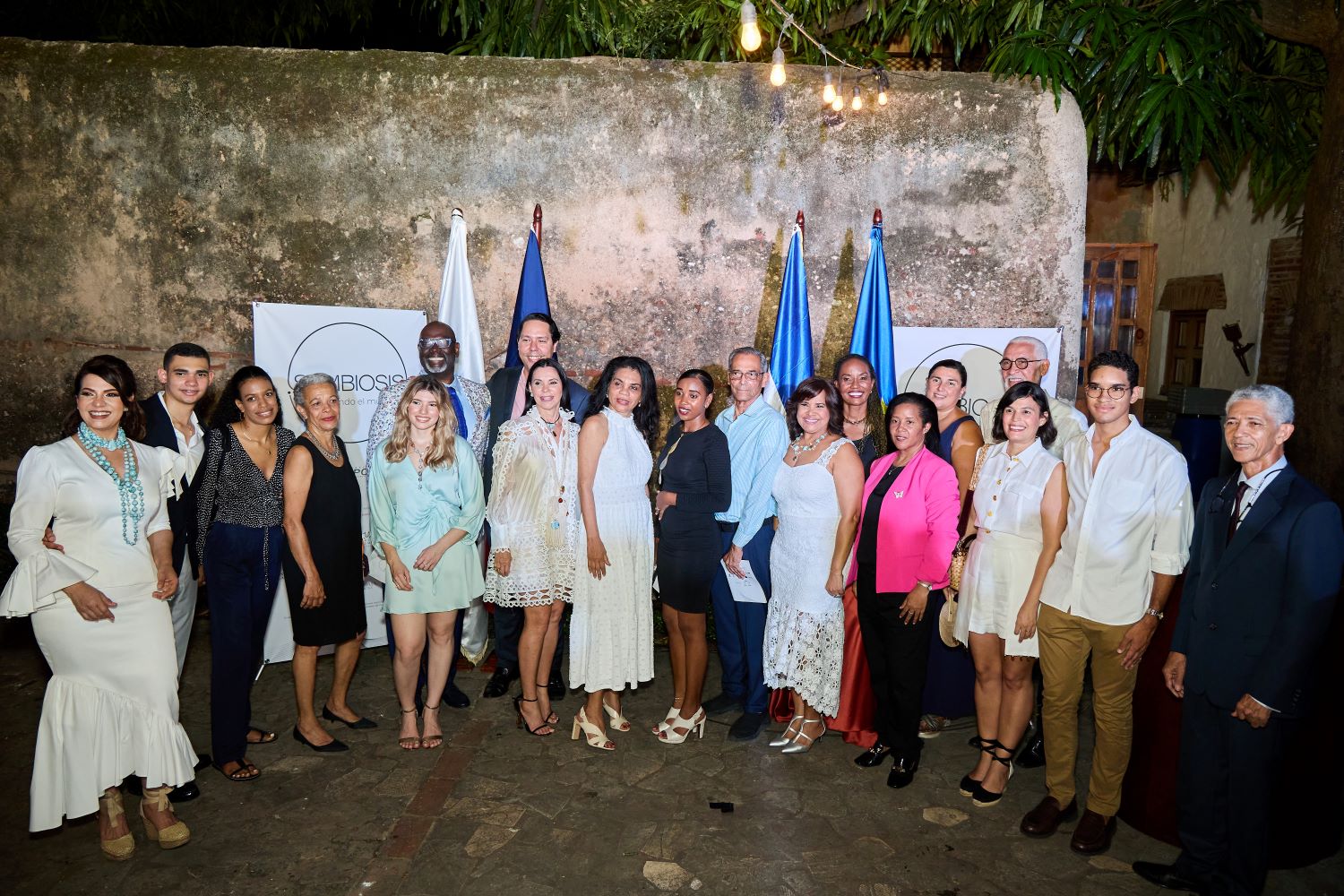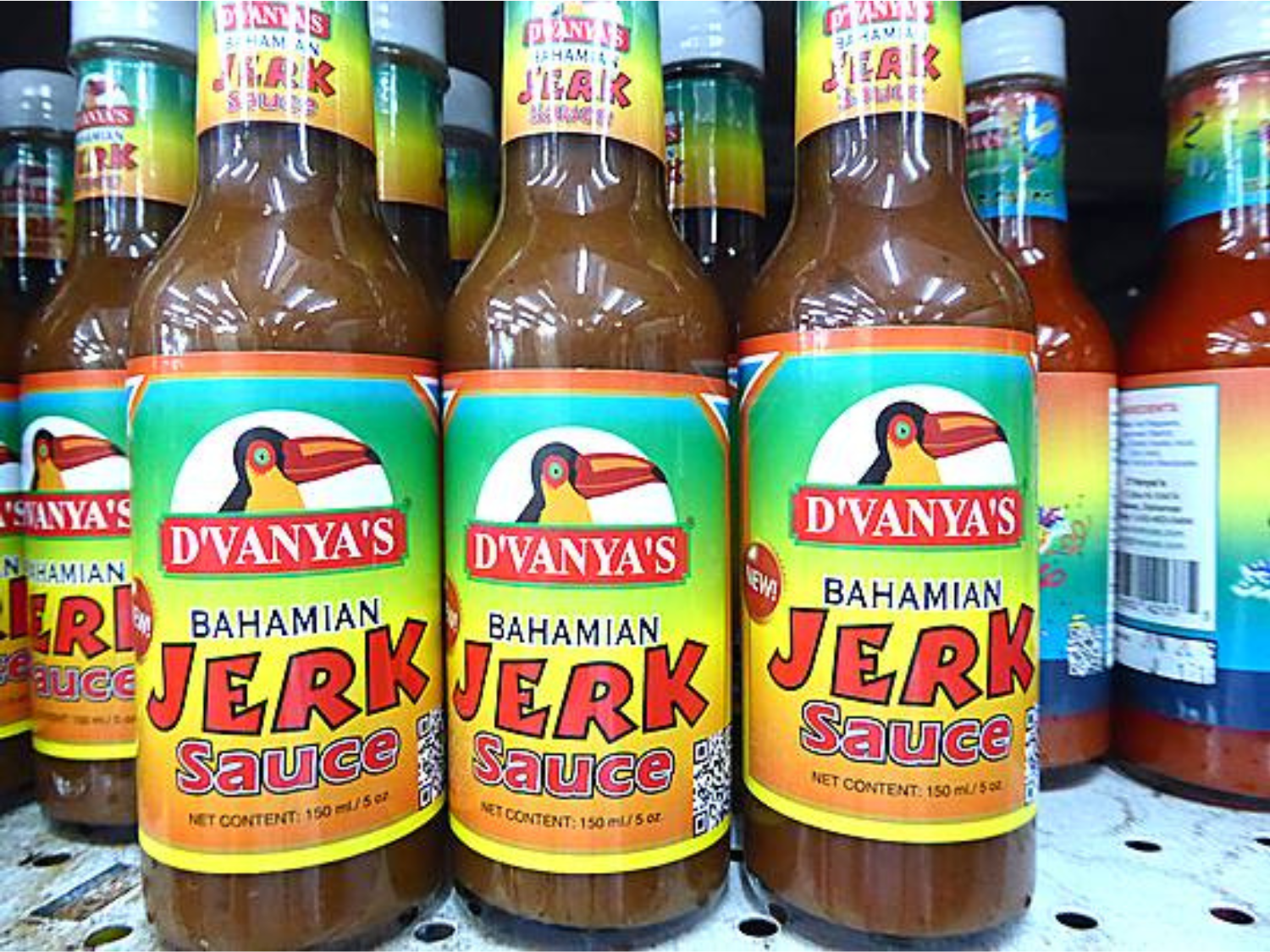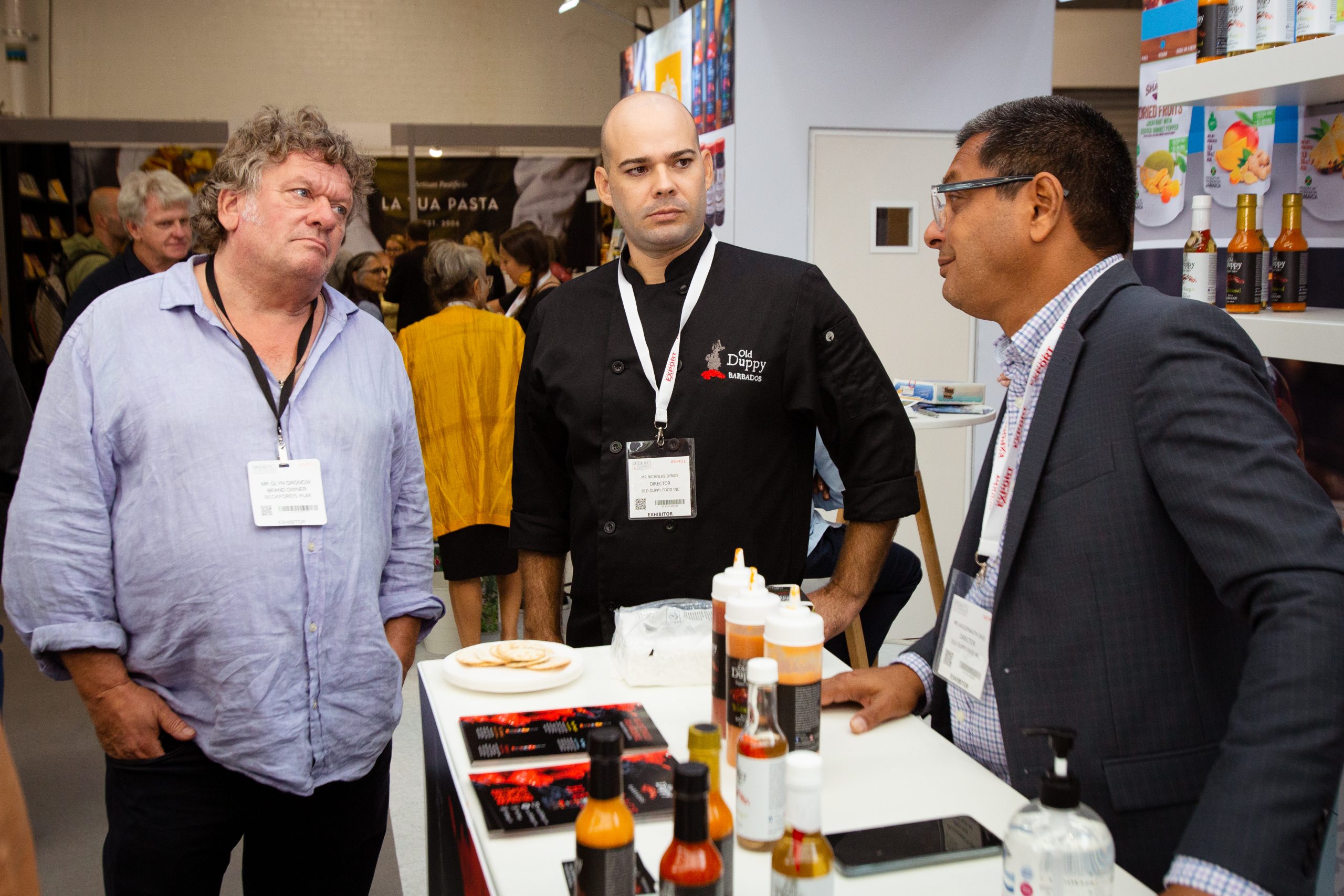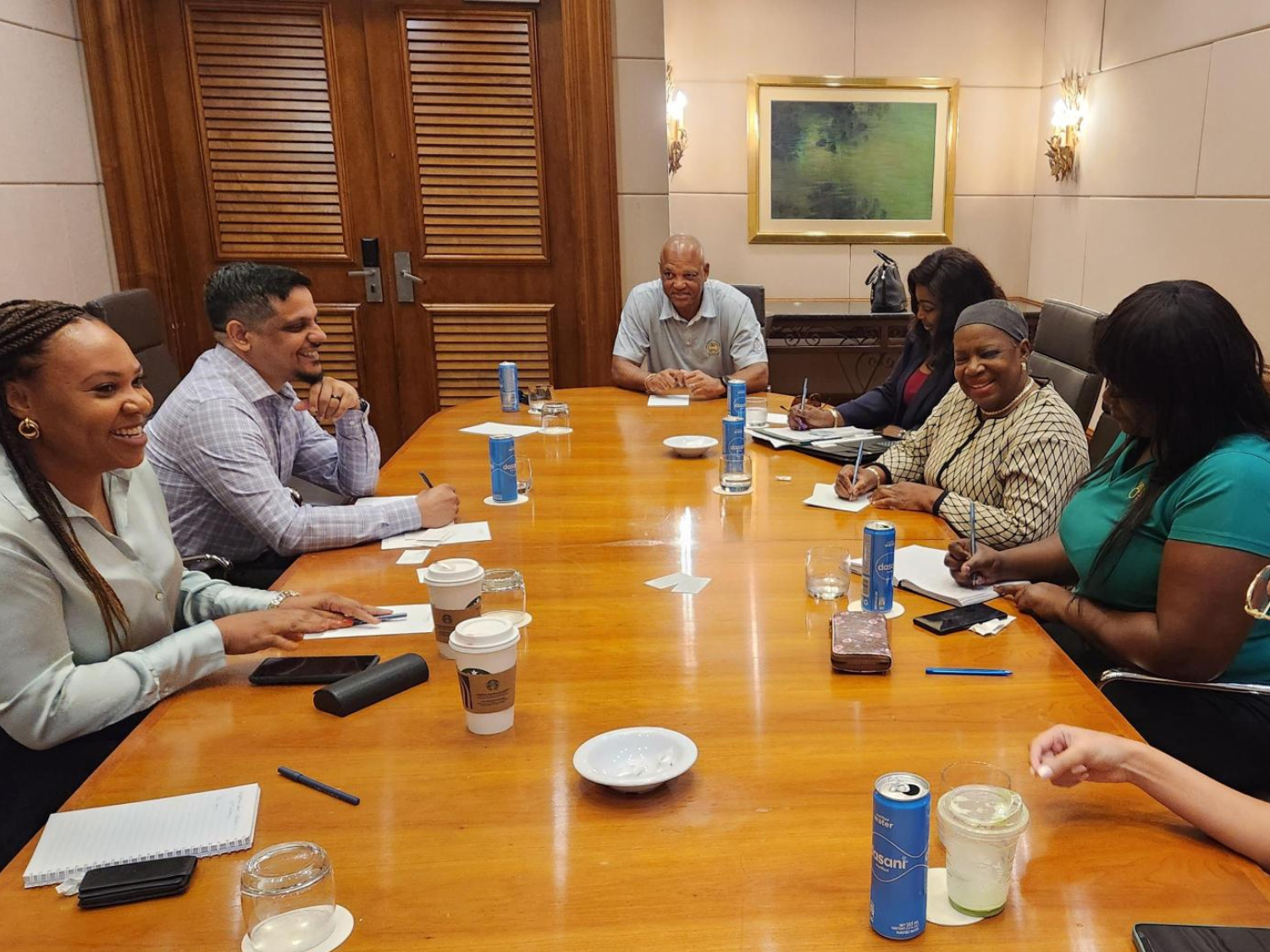During a crowded gathering, Caribbean Export inaugurated the first Dominican-Haitian craft exhibition, “Symbiosis,” in an event attended by prominent personalities from various fields and representatives from the Delegation of the European Union in Dominican Republic and Haiti.
The exhibition, was open to the public from June 23rd to 25th, 2023 at Quinta Dominica, Ciudad Colonial, Santo Domingo, DR. The collection is curated by Anny Abatte and showcased the work of artisans who have created a proposal incorporating indigenous raw materials from the island.
“We have been in the Dominican Republic for over 26 years, supported by the European Union, developing private sector support programs throughout the Caribbean. Since 2012, we have been implementing the private sector trade component in Haiti and the Dominican Republic. Caribbean Export is a resource for all SMEs and anyone wishing to create export potential,” highlighted Leo Naut, Deputy Executive Director of Caribbean Export Development Agency.
Furthermore, he explained that “Symbiosis” is born as part of the implementation of the trade and private sector component of the Binational Cooperation Program between Haiti and the Dominican Republic, financed by the European Union under the eleventh European Development Fund (EDF).
Through the value chains they are creating, the craft sector currently involves a number of beneficiary companies from both Haiti and the Dominican Republic, helping them develop synergies that enable potential co-promotion and co-production. This promotes craftsmanship as an economic development driver with the aim of exporting their talent and creations to the world.
It is worth noting that the selection of artisans for “Symbiosis” was made through a call for entries in collaboration with the Office of the Managing Authority for European Funds and Development in Haiti (BONFED), the Ministry of Economy, Planning and Development (MEPYD), the Ministry of Industry and Commerce (MICM), and the National School of Art of Haiti (ENARTS). Sixteen Dominican and Haitian artisans were chosen to be part of this first edition.
This project has also created a binational dialogue space where artisans from both countries have been able to collaborate on design, learn about the materials and techniques used by each other, and exchange good practices. Additionally, it is projected as a brand and collection, while simultaneously launching two Craft Clusters in the Dominican Republic and Haiti, which will own the brand, giving it sustainability.
This first collection will include a digital catalog and an online sales platform featuring all available pieces. It will also showcase the artisans who created them, along with their contact information, allowing direct communication with the artists for those interested in acquiring a piece.
On the Dominican side, amber and larimar prevail in the creations, while the Haitian pieces incorporate malachite, blue malachite, jasper, and breccia. Some pieces also incorporate horn and bone waste, as well as coconut fragments.
Furthermore, curator and fashion designer Anny Abatte took on this challenge, showcasing the unity, commitment, and creativity of two nations marked by their histories and skillfully combining their objectives.
“The Dominican Republic and Haiti, united through art, showcase a range of handmade jewelry, demonstrating the coexistence not only of their creators but also their gems, metals, techniques, among others. This promotes development, entrepreneurship, and an economic impact that is revealed in the value chain, boosting Caribbean art. This proposal highlights sustainability and an environmentally friendly approach,” she stated.
Meet the artisans
“Symbiosis” features the following exhibitors:
Tipik Creations, born in Haiti, designs fashion accessories and home goods under its own brand, Olga-Nora Lerebours. Inspired by nature and characterized by complex shapes and structures, they embrace sustainability and represent the essence of Haitian culture and identity through clean designs with abstract elements that reflect African and Taíno heritage in each handcrafted piece with fluidity, balance, and elegance.
Emmanuel Saincilus, born in Petite Rivière de l’Artibonite, is an artist who has surpassed the boundaries of insularity, participating in various important exhibitions both within his country and abroad, specifically in the United States and Brazil. His designs possess great delicacy and perfection, narrating the diversity of Caribbean culture through the fine selection of materials and subtle lines of design.
Michel Chataigne, one of the most well-known Haitian stylists, has attracted the most discerning women to his beauty salon for 33 years. He launched his own beauty product brand, his cosmetology school (Institute Michel Hair Design – 1998), a modeling agency (Fashion & Design – 1999), and a fashion line that includes clothing, handbags, shoes/sandals, and accessories. Haitian cultural heritage and African influence are present in his pieces, which combine ancestral Haitian craftsmanship techniques with avant-garde elements and symmetry in design.
Garibaldi Baptiste, born in Pétion-Ville, is passionate about Haitian culture and Vodou. His pieces show that his source of inspiration comes from a blend of African art with elements of Taíno heritage. The fusion of cultures is perceived in the choice of materials and the symbolic significance of elements within the artisanal design, contrasting with simple, elegant, and clean lines that seek to reconstruct the essence of the cultural legacy of the insular Caribbean.
Fabulous Living, a Haitian company specializing in handmade furniture design and home accessories, provides a unique combination of skills in interior design, product design, international development, and business management. It takes pride in partnering with local artisans to ensure the survival of traditional Haitian techniques, sharing knowledge, and preserving Haiti’s cultural heritage.
Régine Tesserot Fabius, “Heritage” collection. The simplicity of elegance is manifested through the use of materials inherent to Haitian artisanal tradition combined with modern and classic elements that bring beauty and warmth.
Ariel Fabius and the “Dancing Taino” collection. This collection conveys the joy and magical vision of the essence of Taíno art in each piece, combined with gold and larimar, evoking the majesty of a legacy that is an essential part of the island’s culture.
Daphnée K Floréal, a Haitian designer who discovered her passion for design at an early age, inspired by the vibrant colors of her culture and the unique mountainous relief of her region. In 2006, she created her line of handmade jewelry, Bijou Lakay. The pieces are crafted by communities of artisans in Haiti using ancestral techniques.
Jenny Polanco, a design legend who evokes and exalts the cultural and charismatic beauty of the island through her proposal, becoming a reference in the Latin American artisanal industry. Her timeless source is Dominican culture, and her particular aesthetic is represented through the combination of materials, achieving unique designs that capture the essence of the Dominican cultural legacy passed down through generations through the bonds of artisanal coexistence.
Giselle Mancebo, a Dominican designer of handmade jewelry characterized by the use of classical techniques with a touch of baroque style. In her pieces, she demonstrates great mastery and balance in selecting the elements to be used. Creating jewelry with identity is her goal, seeking to recreate memorable experiences and showcasing her imprint of contemporary luxury.
Fátima Polanco. She opened her first physical store in 2010, focusing on creating handmade jewelry pieces with exclusive designs featuring a wide variety of styles, techniques, and materials. They evoke our history full of colorful nuances, combining native stones with a style characterized by the elegance of cleanliness in contrast with avant-garde and youthful design.
Cristina Núñez. This Dominican artist has over 20 years of experience dedicated to artisanal work. In her designs, endemic materials from the Dominican Republic often come together boldly, bringing to life the ethnic and indigenous aspects through her creations. The Dominican cultural legacy, filled with folklore and exuberance, is showcased, highlighting creative freedom and the essence of tradition.
Bárbara Taveras. Her designs find inspiration in the sea and within her feminine imagination, where the extravagant and daring merge with native materials of the island, enhancing the beauty of the Caribbean woman. The universe of femininity is strongly present, and she manages to combine a clean technique, native stones, and elements in the pursuit of elevating the beauty of the Caribbean woman.
Gimarie Grullón/ Tiaggi. With a style that embraces minimalism, this emerging jewelry designer focuses on combining native materials with a modern and fresh twist to the local design scene, aiming to exalt the Dominican artisanal legacy through the creation of a distinct jewelry style representing the country.
Gisela María Lozada/ (SHELAIA store). Her passion for design grew until she materialized it through her brand, SHELAIA STORE. She works on the design of artisanal pieces using native Dominican materials, and her pieces embody a contemporary style with a touch of lush femininity.
Jorge Caridad, a craftsman driven by his vocation, marks a before and after in the history of the development of our artisanal industry. He is the founder of the Amber and Larimar Museums and a pioneer in the internationalization of Dominican goldsmithing work. As the backbone of “Symbiosis,” his experience and perseverance become a fundamental part of interpreting the proposals of Dominican and Haitian artisans in this ambitious project that seeks to merge the talent of the islands and showcase the noble raw materials shared by Haiti and the Dominican Republic.
